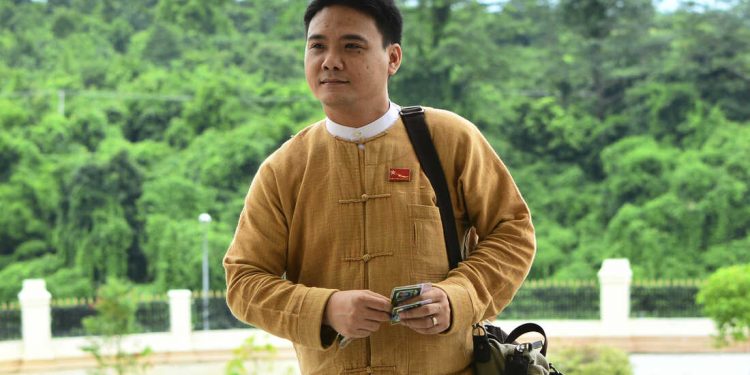Bangkok: International outrage over Myanmar’s executions of four political prisoners intensified Tuesday with grassroots protests and strong condemnation from world governments. There was fear as well that the hangings could derail nascent attempts to bring an end to the violence and unrest that have beset the Southeast Asian nation since the military seized power last year.
Myanmar’s military-led government which seized power from elected leader Aung San Suu Kyi in February 2021 has been accused of thousands of extrajudicial killings since then. However, the hangings announced Monday were the country’s first official executions in decades.
“We feel that this is a crime against humanity,” said Malaysian Foreign Minister Saifuddin Abdullah, speaking at the side of the United Nations’ Special Envoy on Myanmar Noeleen Heyzer at a press conference in Kuala Lumpur. He said the executions would be a focus of the upcoming meetings of the Association of Southeast Asian Nations foreign ministers, which begin in Cambodia in a week.
Myanmar is a member of the influential ASEAN group, which has been trying to implement a five-point consensus it reached on Myanmar last year calling for dialogue among all concerned parties, provision of humanitarian assistance, an immediate cessation of violence and a visit by a special envoy to meet all parties. With the executions we look at it as if the junta is making a mockery of the five-point process,” Abdullah said.
Heyzer said that the UN sees the executions as a ‘blatant violation’ of a person’s ‘right to life, liberty and security’.
In Bangkok, hundreds of pro-democracy demonstrators protested outside neighbouring Myanmar’s embassy, waving flags and chanting slogans amid a heavy downpour. “The dictators used their power arbitrarily,” yelled a young man through a bullhorn to the crowd, some of whom waved pictures of Suu Kyi or the four executed men. “We can’t tolerate this anymore.”
Myanmar’s government spokesperson, Major General Zaw Min Tun, firmly rejected the criticism. He said the executions were carried out in line with the country’s law and not for ‘personal” reasons’.
“We knew that there may be criticism when the death penalties were handed down and conducted in line with domestic law,” Tun told reporters. “However, we did it for reasons of domestic stability, for the rule of law and order, and security,” Tun added.
Tun informed that the executed men were convicted of crimes involving supporting violent ‘terrorists’ and acts — allegations denied by their defenders — and said their punishment was ‘appropriate’. “If we considered leniency for those who committed such crimes it would have been cruel and without sympathy for the victims,” Tun asserted.
Among the four executed was Phyo Zeya Thaw, a 41-year-old former lawmaker from Suu Kyi’s party, and Kyaw Min Yu, a 53-year-old democracy activist better known as ‘Ko Jimmy’. All were tried, convicted and sentenced by a military tribunal with no possibility of appeal.
The executions were carried out over the weekend, and came as a surprise even to family members. Thaw’s mother Khin Win May told this agency that she had just spoken with her son via video conference Friday and he had asked her for reading glasses, books and some spending money. “I was a little shocked when I heard about the execution, I think it will take some time,” she said. “I’m proud of all of them as they sacrificed their lives for the country,” May added.
Myanmar, formerly known as Burma, announced in June that it was going to resume executing prisoners and has 113 others who have been sentenced to death, although 41 of those were convicted in absentia, according to the Assistance Association for Political Prisoners, a non-governmental organisation that tracks killing and arrests. At the same time, 2,120 civilians have been killed by security forces since the military takeover.






































